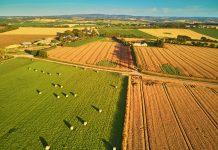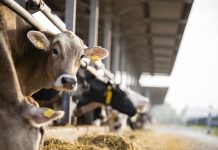Stoyan Tchoukanov, EESC member and Rapporteur for the EESC opinion on Promoting autonomous and sustainable food production, shares with us strategies for the Common Agricultural Policy post-2027
According to recent reports, Europe, the fastest-warming continent on Earth, is at a critical crossroads. With over 50% of global GDP dependent on nature and nearly 40% of jobs worldwide hinging on healthy ecosystems, the stakes have never been higher. Amidst this environmental urgency, Europe is also grappling with exceptional geopolitical challenges, including the war in Ukraine and a pressing need for an energy transition. These compounding crises underscore the vital importance of food security and sustainable food production within the EU.
Agricultural Policy: Europe’s farmers on the brink
EU farmers are facing a perfect storm of economic pressures. Inflation and volatile energy markets have severely disrupted their living standards, with farm incomes now approximately 40% lower than those in non-agricultural sectors. The agricultural landscape is also shrinking alarmingly, with the EU losing almost three million farms (25%) between 2010 and 2020. At the same time, there has been a 23% drop in agricultural labour over the past decade. This decline in both farms and labour has sparked widespread farmer protests, signalling an urgent need for robust support during this transitional period.
Contrary to being viewed as a burden, environmental and climate policies should be embraced as crucial long-term solutions. The Common Agricultural Policy (CAP) post-2027 must offer a stable, long-term framework that promotes sustainable food production and strategic autonomy for the EU. It should protect the diversity of types of farming in the EU, in particular the widespread family farming model, while addressing societal and ecological needs through the principle of ‘public money for public goods’, ensuring rural development thrives.
Why adequate support is crucial for sustainable food security
The European Economic and Social Committee (EESC) proposes a transformative approach to CAP. Instead of merely compensating costs and lost income, CAP reforms should shift towards financial incentives that reward environmental and societal benefits. Small family farms should retain the option for income support based on surface payments and labour units, ensuring they remain viable as the EU contemplates future enlargement.
To match CAP’s ambitions, the EESC calls for increased funding and fair competition, urging EU taxpayers to contribute somewhat to the provision of invaluable environmental services and trade agreements to set health, work and environmental standards that are at least equivalent to those required in the EU. Over the past 40 years, CAP’s share of the EU budget has dramatically declined from 65.5% to just under 25% in 2021, a trend that must be reversed to meet the current challenges.
Given the escalating climate risks, rising energy prices and supply chain disruptions for energy and fertilisers, the CAP should integrate counter-cyclical components and investment support schemes to boost renewable energy production at the farm and local levels. Public-private insurance partnerships should also be reinforced to provide a safety net for farmers.
To prevent land abandonment and promote the sustainable use of marginal lands, CAP must include targeted annual payments and investment support for new entrants into agriculture. This approach will help maintain agricultural production across the EU and promote extensive livestock breeding, which is crucial for ecological balance and the development of rural areas.
The CAP must also encourage healthier and more sustainable diets, reduce food waste, and regulate food markets to curb speculation and profiteering. With food prices soaring, these measures are vital to ensure that Europeans can afford nutritious food while fostering a more resilient food system.
Supporting the next generation of farmers
Lastly, supporting the next generation of farmers is paramount. This involves increasing average earnings from farming, ensuring access to land, creating favourable investment conditions and providing opportunities for upskilling and the empowerment
of women in agriculture.
The future of Europe’s food security and sustainable agriculture hinges on bold and comprehensive support for its farmers. By reimagining policies and funding, the EU can navigate its way through the current crises towards a resilient and sustainable agricultural future.











